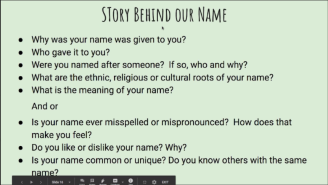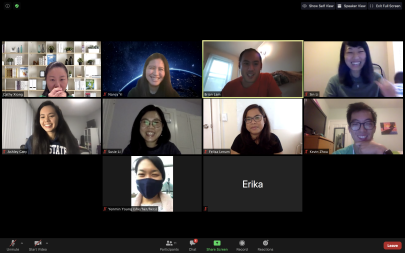
“In this space, we provide each other with sympathetic ears, comfort, and a moment free from stereotypes or marginalization.”
MƒA Affinity Groups meet regularly and are designed to give MƒA teachers a safe space to discuss various aspects of equity and inclusion related to life inside and outside the STEM classroom. These intimate, small group meetings are meant to encourage MƒA teachers, who share common interests or identities, to connect, support, and empower one another throughout the academic year. Our Fall 2020 Professional Development Catalog offered a variety of teacher-led Affinity Groups for the MƒA community to participate in, including:
- Asian American Affinity Group
- Black, Latinx, & POC Educators Affinity Group
- LGBTQIA+ Affinity Group
- West Indian/ Caribbean Affinity Group
“BIPOC teachers are often expected to be experts of our communities. We’re pigeonholed as a disciplinarian teacher or classroom management expert instead of a respected content specialist,” said MƒA Master Teacher Michelle Sims (A. Philip Randolph Campus High School), co-facilitator of the Black, Latinx, & POC Educators Affinity Group. Michelle mentioned a popular segment of her affinity group is called “sound-off,” where everyone is given time to vent about recent challenges they’ve faced as BIPOC educators. “In this space, we provide each other with sympathetic ears, comfort, and a moment free from stereotypes or marginalization.”

Last fall, MƒA Master Teachers Brian Lam (The Bronx High School of Science), Sin Li (New Utrecht High School), and Cathy Xiong (Robert F. Wagner, Jr. Secondary School for Arts and Technology) co-facilitated the Asian American Affinity Group where teachers shared personal experiences, pictures, and stories to help build connections.
“We invited guest speakers to give insight into their cultural experiences and journeys as Asian Americans,” the group shared. “The stories brought a lot of joy to our conversations and made our community stronger each and every time."
In addition, Brian, Sin, and Cathy believe that sharing personal stories through a virtual environment may be easier than in-person meetings because teachers don’t feel the pressure of speaking in front of a large crowd. “Community and social interactions are something that we’re especially missing while remote. But in some ways, these virtual MƒA events allow us to have a closer and deeper connection than before.”
